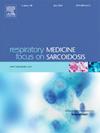静脉-静脉体外膜氧合后的死亡模式-一项回顾性单中心分析。
IF 3.5
3区 医学
Q2 CARDIAC & CARDIOVASCULAR SYSTEMS
引用次数: 0
摘要
静脉-静脉体外膜氧合(VV ECMO)患者死亡率高。由于缺乏可靠的预测评分系统,选择可能存活的患者具有挑战性。为了更好地了解与不良结果相关的先决条件和并发症,我们评估了没有在ECMO支持下存活或从ECMO断奶后在医院死亡的患者的死亡原因。在这项单中心回顾性观察性试验中,纳入了2009年2月至2021年7月期间在弗莱堡大学医学中心跨学科医学重症监护室接受VV ECMO治疗的所有患者。206/374例患者(55%)在ECMO启动后死亡。死亡原因为呼吸衰竭(101/206,49.0%)、心肺功能衰竭(49/206,23.8%)、因神经预后有限而停药(30/206,14.6%)或严重合并症(23/206,11.2%)。致命的ECMO并发症是罕见的。死亡率的主要预测因素是肺纤维化、肝脏疾病和免疫抑制。一半的死亡是由非呼吸系统原因造成的。这一观察结果可能为未来评估VV ECMO的选择标准、治疗相关并发症和并发症管理以及肺外先决条件的意义和相关性的试验提供信息。本文章由计算机程序翻译,如有差异,请以英文原文为准。

Mode of death after venovenous extracorporeal membrane oxygenation – a retrospective single-center analysis
Mortality of patients supported with veno-venous extracorporeal membrane oxygenation (VV ECMO) is high. Selection of patients likely to survive is challenging as reliable predictive scoring systems are lacking. For a better understanding of preconditions and complications associated with unfavorable outcome we assessed reasons for death in patients who did not survive ECMO support or who died in-hospital after weaning from ECMO. In this single-center retrospective observational trial all patients supported with VV ECMO at the University of Freiburg Medical Center's Department for Interdisciplinary Medical Intensive Care between February 2009 and July 2021 were included. 206/374 patients (55 %) died after initiation of ECMO. Causes of death were respiratory failure (101/206, 49.0 %), cardiocirculatory failure (49/206, 23.8 %), treatment withdrawal due to limited neurological prognosis (30/206, 14.6 %), or due to severe comorbidities (23/206, 11.2 %). Fatal ECMO device complications were rare. Major predictors for mortality were pulmonary fibrosis, liver disease and immunosuppression. Half of the deaths were due to non-respiratory causes. This observation may inform future trials assessing selection criteria for VV ECMO, treatment associated complications and complication management and the meaning and relevance of extra-pulmonary preconditions.
求助全文
通过发布文献求助,成功后即可免费获取论文全文。
去求助
来源期刊

Respiratory medicine
医学-呼吸系统
CiteScore
7.50
自引率
0.00%
发文量
199
审稿时长
38 days
期刊介绍:
Respiratory Medicine is an internationally-renowned journal devoted to the rapid publication of clinically-relevant respiratory medicine research. It combines cutting-edge original research with state-of-the-art reviews dealing with all aspects of respiratory diseases and therapeutic interventions. Topics include adult and paediatric medicine, epidemiology, immunology and cell biology, physiology, occupational disorders, and the role of allergens and pollutants.
Respiratory Medicine is increasingly the journal of choice for publication of phased trial work, commenting on effectiveness, dosage and methods of action.
 求助内容:
求助内容: 应助结果提醒方式:
应助结果提醒方式:


